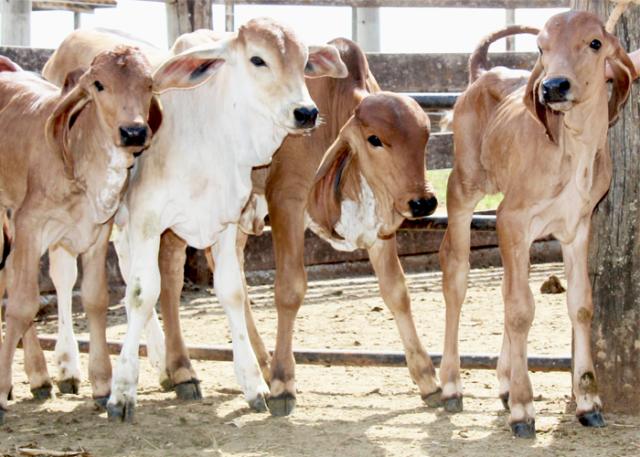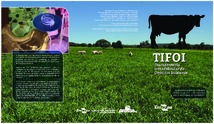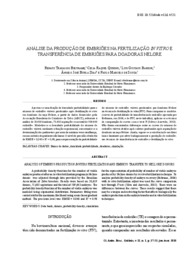Brazil is the first country to develop embryo production technique that does not use labs
Brazil is the first country to develop embryo production technique that does not use labs
Photo: Claudio Bezerra

Three calves resulting from IFIOT. The picture illustrates the difference between them and the one that was born from the same ovulator.
Embrapa Genetic Resources and Biotechnology (Brasília, DF) will introduce a technology called intrafollicular immature oocyte transfer (IFIOT) on Tuesday (November 29). It is a biotechnique that has all the advantages of in-vitro fertilization (IVF) with an additional benefit: the fact that it does not require a laboratory. Breeders can obtain embryos with the same speediness that IVF provides, that is, around one calf per week from a single donating cow, and they do not even have to leave their farms.
Brazil is the first to successfully perform full IFIOT. There has been only one report of successful use of the technique in Germany; however, the European experiment resorted to a laboratory in the course of the process, which makes their result incomplete. The development of the Brazilian IFIOT obtained the birth of three calves at the Sucupira Farm, Embrapa's experimental field located in Brasília, DF. The achievement generated a trademark request for the National Industrial Property Institute (INPI, from the acronym in Portuguese).
Nowadays, IVF is the biotechnique that is most used in animal genetic improvement in Brazil, due to the ability to increase the number of descendants of a cow in less time. To give an idea of the potential of the reproduction biotechniques that have the highest impact in global cattle farming today, one can estimate that artificial insemination (AI) allows the obtention of a calf a year; classic embryo transfer (ET), one a month; while IVF can produce one calf per week.
The cow is the lab
According to Embrapa's researcher Margot Dode, IVF represented a significant advance in comparison with other biotechnologies. That is why it is the one Brazil most uses today. The country is a world leader in the production of bovine embryos, with 450,000 of the 600,000 embryos produced worldwide.
Embryos produced in vitro are obtained outside a maternal body, in lab conditions. In such process, the oocytes (eggs) are aspired when they are still immature, and then they are matured and fecundated in a laboratory. Seven days later, they are transferred to surrogate cows.
One of the disadvantages of the technique is that the quality of embryos produced in lab conditions is lower than of embryos produced by a mother's body; hence they are less resistant to freezing and some can not even endure a full pregnancy.
The largest advantage IFIOT brings lies precisely in this point. The whole process is done within the animal itself. In a nutshell, the cow is the lab. The eggs are aspired like in IVF, but instead of matured in labs, they are cultivated within an animal's body (ovulator), benefitting from their natural reproduction process. After the ovulation, the eggs are fertilized through artificial insemination (AI). Seven days later, the embryos that have developed are collected and transferred to the surrogate cow, similarly to a classic embryo transfer. "In addition to the embryos having been produced naturally in the female animal's reproductive system, the technique dispenses with all lab components", Margot details.
The entire process occurs naturally, taking advantage of the ovulator's physiological events, which gives the embryos more quality. "In addition, as there is no need for a laboratory, it significantly decreases the final production costs", the researcher adds. "IFIOT not only has all the advantages of IVF, but also eliminates the disadvantages", she concludes.
Transfer to the production sector
The next step is to increase efficiency and transfer the technology to the production sector through courses and publications.
Translation: Mariana de Lima Medeiros
Fernanda Diniz (MTB 4685/89/DF)
Embrapa Genetic Resources and Biotechnology
Press inquiries
Phone number: (61) 3448-4768
Further information on the topic
Citizen Attention Service (SAC)
www.embrapa.br/contact-us/sac/


